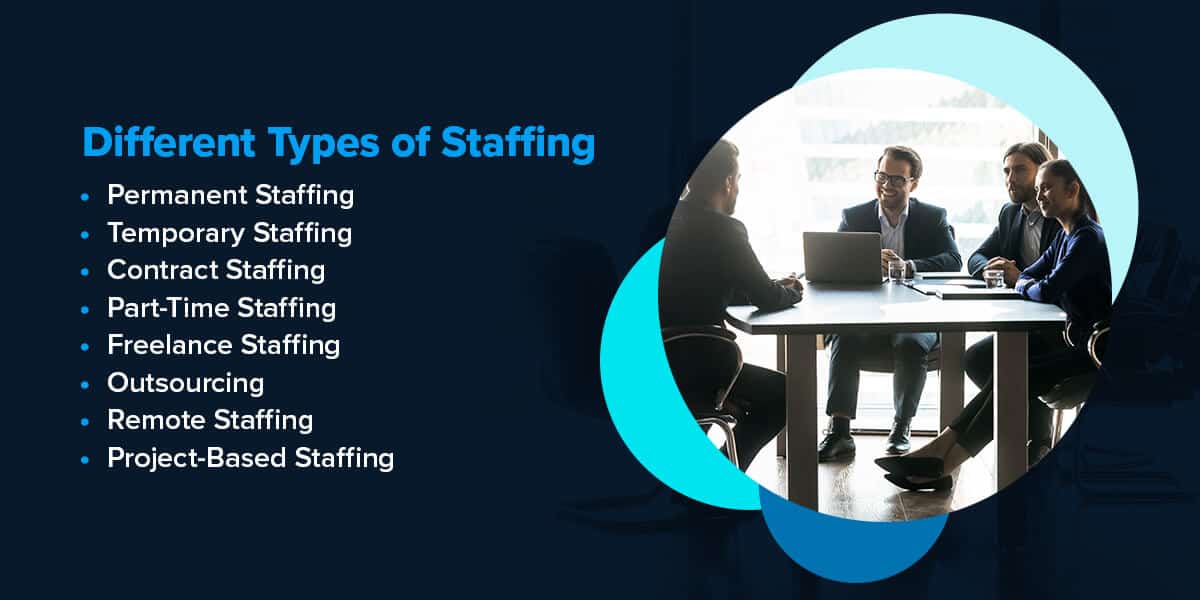Outsourcing Payroll: Maximize Efficiency And Minimize Expenses

본문
✔ Outsourcing payroll might minimize administrative problems, conserve time, and guarantee compliance with tax laws.
✔ Cost cost savings vary from 18%-35% on typical compared to in-house payroll processing.
✔ Payroll service providers deal with wage computations, tax filings, direct deposits, benefits reductions, and more.
✔ Businesses of all sizes advantage, particularly those without dedicated payroll personnel.
✔ Choosing the best payroll service depends on business size, complexity, and require for integration with existing systems.

Every other Friday, Lisa braced herself for what had essentially become a continuous source of stress: payroll. As the office manager for a growing home services business, she wore numerous hats: scheduling tasks, managing invoices, managing HR jobs, and more. Payroll was simply another duty on her overflowing plate, and regardless of her best efforts, something constantly appeared to fail.

Last pay duration, she overlooked overtime for 2 service technicians, causing a payroll correction that took hours to fix. The month before, a tax filing deadline slipped through the cracks, resulting in an expensive late cost. And after that there were the continuous concerns from workers about their incomes - was my bonus offer included? Why are my deductions different this week? Exists still time to correct my punch card? When will I receive my W-2?
Lisa's tension level was through the roofing system. Something had to change. Accordingly, Lisa started exploring her choices. What if the business had another person manage payroll? By handing off payroll to a professional supplier, or, at the minimum, updating their software, she might eliminate the danger of errors, make sure compliance with tax laws, and complimentary up hours every week to concentrate on running business.
Does your payroll journey mimic Lisa's? Is payroll an obstacle that looms at the end of every other week? Luckily, you're not alone. In this short article, we'll explore how contracting out payroll works, the advantages it provides, and whether it's the right move for your service.
Outsourcing payroll is the practice of handing off payroll-related tasks to a third-party company who concentrates on processing salaries, taxes, and other compensation-related obligations. Instead of handling payroll by hand - or managing numerous software application solutions - services can depend on specialists to make sure staff members are paid properly and on time while remaining compliant with tax laws.
Payroll providers handle a series of tasks, including:
✅ Processing staff member incomes and professional payments;
✅ Calculating and filing payroll taxes;
✅ Managing direct deposits and paper checks;
✅ Handling deductions, garnishments, and benefits contributions; and
✅ Staying up to date with ever-changing labor laws and tax rates.
Approximately 61% of companies outsource their payroll procedures. The choice to contract out the entire function or sector out parts, such as tax filings or direct deposit management, largely depends upon business size, payroll complexity, and internal resources.
For larger services with workers throughout numerous states, payroll outsourcing can streamline compliance with different tax laws and policies. But little and mid-sized businesses also benefit - specifically those without a dedicated payroll expert. Considered that payroll laws frequently change, contracting out ensures organizations remain compliant without needing to continuously monitor updates.
Years ago, it was unheard of for companies to delegate payroll to an outdoors company. But today, advances in payroll innovation make contracting out a cost-efficient and efficient option. Whether you require full-service payroll support or just assist with specific jobs, contracting out can release up important time, minimize administrative headaches, and give service owners assurance. Statistics back this up. According to a PwC research study, business that outsource their payroll functions experience expense reductions of 18%-35%, on average.
Is contracting out payroll the best choice for your company? In the next section, we'll explore the essential advantages and possible drawbacks to help you choose. If not, a best practice may include updating your internal software. While we're biased, an option like OnTheClock permits you to encapsulate time tracking, scheduling, and payroll in one platform. No more third-party costs, hold-ups, or mistakes!
Don't let taxes get you down. Make payroll simple with OnTheClock!
Your trouble-free service for payroll.
The Benefits of Outsourcing Payroll
Having your staff complete payroll might look like a cost-savings procedure; nevertheless, the truth is that it's typically time-consuming, complex, and susceptible to costly mistakes. Outsourcing payroll uses businesses a streamlined, protected, and economical service. Here's how it can benefit your company:
Save Time and Boost Productivity: Payroll isn't practically moving earnings - it involves tracking hours, determining taxes, managing advantages reductions, and ensuring compliance with ever-changing regulations. For small services, this obligation typically falls on a single individual or a small HR group, pulling focus away from strategic efforts. Outsourcing payroll gets rid of these time-consuming tasks, freeing up your group to focus on development and staff member engagement.
Reduce Payroll Costs: Many small and mid-sized companies find that outsourcing payroll is more affordable than keeping an internal payroll team. The expenses connected with payroll software, worker training, tax filing, and compliance management can build up rapidly. By contracting out, companies can access professional payroll services at a predictable monthly cost - frequently less than the expense of working with a full-time payroll professional.
Minimize Errors and Ensure Compliance: Payroll mistakes aren't just frustrating - they can cause considerable monetary penalties. From overestimating tax withholdings to missing due dates, errors can trigger audits, fines, and unhappy workers. Payroll service providers concentrate on tax compliance, keeping up to date on federal, state, and local policies to ensure accurate filings and prompt payments.
Enhance Data Security: Payroll information consists of delicate employee info, such as Social Security numbers and bank account information. Cybersecurity dangers and internal fraud threats make payroll security a top concern. Professional payroll providers purchase sophisticated file encryption, safe and secure cloud storage, and multifactor authentication to keep your business's monetary data safe.
Avoid Payroll Disruptions: If your internal payroll expert takes a vacation, gets ill, or leaves the business, payroll operations can be thrown into mayhem. Outsourcing supplies continuity and dependability, guaranteeing payroll is processed accurately and on time, whenever.
Simplify Direct Deposit and Benefits Integration: Many small services struggle to establish direct deposit or appropriately incorporate payroll with advantages administration. Payroll companies streamline this procedure, ensuring workers are paid quickly and deductions for benefits like health insurance and retirement strategies are handled properly.
Scale With Your Business: As your company grows, payroll complexity increases. More employees suggest more tax obligations, benefit alternatives, and compliance requirements. A payroll supplier can scale with your company, adjusting to new difficulties without needing you to employ additional HR workers.
The Downsides of Outsourcing Payroll
While contracting out payroll can conserve time and reduce administrative problems, it's not without its difficulties. Before devoting to an external service provider, it's important to weigh the prospective drawbacks and identify whether the trade-offs align with your service's needs.
Loss of Control Over Payroll Processes: When you contract out payroll, you relinquish direct oversight of crucial payroll functions. While automation and dedicated payroll experts can reduce errors, you might have restricted presence into the process. If an error occurs, such as an incorrect income or a missed out on tax filing, it could take longer to fix than if payroll were handled in-house. Additionally, you may need to depend on consumer support teams with differing levels of responsiveness rather than making instant adjustments yourself.
Data Security Concerns: Outsourcing requires sharing sensitive worker details, consisting of Social Security numbers, wages, and tax details, with a third party. While a lot of payroll companies implement robust security measures, information breaches stay a danger. Additionally, since you don't manage their security procedures, you're relying on their capability to secure employee data. Any lapse in security could cause identity theft, compliance problems, or monetary losses.
Limited Customization and Flexibility: Payroll providers generally use standardized services that might not completely align with your company's needs. If your service has special payroll structures, such as customized perks, commissions, or industry-specific deductions, adjusting to a third-party system can be challenging. Furthermore, last-minute payroll modifications, such as adding a cost reimbursement or correcting a tax code, might not be as smooth as they would be with an in-house payroll group.
Potential Hidden Costs: While outsourcing can appear cost-effective, costs can accumulate beyond the base subscription cost. Some companies charge additional for year-end tax filings, compliance updates, off-cycle payroll runs, or integration with other service software application. If your business needs frequent payroll adjustments or customized reporting, these additional expenses can quickly go beyond the preliminary budget plan. Employee Experience Challenges: When payroll is contracted out, employees frequently have to call a third-party company for payroll-related questions or concerns. This can develop a disconnect, as workers may struggle with impersonal client service, long wait times, or irregular support quality. Unlike an internal payroll group that comprehends business culture and policies, an outsourced provider may not offer the same level of familiarity or responsiveness.
Dependency on Provider Stability: Relying on an external company for payroll implies your organization is susceptible to its operational stability. If the provider experiences financial difficulty, technical failures, or sudden service disturbances, your payroll process might be impacted. In extreme cases, a supplier closing down all of a sudden might cause lost payroll information and significant operational headaches.
The Different Types of Payroll Services
Not all payroll outsourcing services are created equivalent. Businesses have various requirements, and payroll service providers offer various levels of service to accommodate them. Whether you wish to hand off everything or maintain some control, there's an outsourcing design that fits your business. Here are the primary kinds of outsourced payroll services:
1. Full-Service Payroll Outsourcing: If you're trying to find a completely hands-off technique, full-service payroll outsourcing is the way to go. This kind of company deals with every aspect of payroll, consisting of:
- Calculating earnings and reductions;
- Managing tax filings and compliance;
- Administering employee advantages; and
- Handling direct deposits and incomes.
With a full-service provider, all you need to do is provide employee information, such as hours worked and wage updates. While this option is the most convenient, it likewise tends to be the most expensive. Plus, businesses need a reliable system for sharing accurate payroll details on time.
2. Partial Payroll Outsourcing: For businesses that choose to maintain some control over payroll however offload complex tasks, partial outsourcing is a fantastic middle ground. Companies may select to:
- Manage worker time tracking and participation in-house while outsourcing tax filing;
- Handle direct deposit themselves however contract out compliance and reporting; and
- Keep payroll processing internal however utilize an external provider for year-end tax types.
This design permits companies to decrease their administrative concern while maintaining oversight on vital payroll functions.
3. Cloud-Based Payroll Services: Cloud-based payroll contracting out offers versatility and real-time access to payroll information. These services:
- Automate payroll calculations and tax filings;
- Allow workers to gain access to pay stubs and tax documents through self-service portals; and
- Integrate with accounting and HR software application.
Since cloud payroll services are web-based, companies can manage payroll from anywhere. This alternative is ideal for remote teams and growing companies that require scalability.
4. International Payroll Outsourcing: For business with a worldwide labor force, international payroll suppliers simplify the complexities of handling workers across different countries. These services:
- Ensure compliance with local tax laws and labor regulations;
- Handle multi-currency payroll processing; and
- Manage cross-border payroll tax filings.
Outsourcing international payroll can prevent costly compliance errors while simplifying payments for overseas staff members.
5. DIY Payroll with Provider Support: Some payroll providers use a hybrid approach where organizations handle the majority of payroll tasks but utilize software and tools offered by the contracting out business. This design is perfect for business that:
- Wish to maintain direct control over payroll processing;
- Need automation tools to streamline computations; and
- Prefer professional assistance for compliance questions.
This technique combines the versatility of in-house payroll with the security of expert guidance.
How to Choose the Proper Payroll Partner
The ideal payroll service depends upon your business's size, structure, and requires. If you want a completely stress-free experience, full-service outsourcing might be the very best choice. If you require flexibility, partial or cloud-based services might be a better fit. Here's a list of actions you need to consider when selecting the ideal payroll supplier.

Define Your Payroll Needs: Before comparing service providers, outline precisely what you require from a payroll service. Are you searching for full-service payroll that manages everything, or do you choose partial payroll contracting out where you retain control over certain jobs? Consider functions like direct deposit, tax filing, benefits administration, and compliance tracking. If your company runs in multiple areas or employs remote workers, you may also require multistate or international payroll capabilities.
Integration with Existing Tools: A seamless payroll procedure depends on how well your payroll company incorporates with your existing systems. Look for services that link with your scheduling software application, HR platforms, and time tracking tools. Proper integration can reduce manual data entry, decrease mistakes, and improve overall performance.
Compliance and Tax Expertise: Payroll is more than just paying staff members - it involves tax filings, reductions, and compliance with labor laws. A trustworthy payroll partner need to keep up to date with modifications in tax regulations and make sure accurate reporting to avoid costly penalties. Ask possible providers about their compliance procedures and how they deal with updates to federal, state, and regional tax laws.
Pricing Structure and Value: Cost is a significant aspect when choosing a payroll service provider, but the most inexpensive alternative isn't always the very best. Compare rates designs, as some suppliers charge a flat monthly cost, while others costs per pay period or per worker. Many payroll options, consisting of OnTheClock Payroll, tend to be around $40 each month and $6 per worker. Make sure to account for any extra expenses for tax filings, direct deposits, or HR add-ons. The best payroll partner provides a balance of affordability and value, saving you time and decreasing payroll-related headaches.
Customer Support and Service Quality: can be difficult, so having access to responsive consumer support is vital. Evaluate the supplier's service choices: Do they use live phone assistance, chat, or email help? Check online reviews and testimonials to evaluate their track record for customer support. A payroll partner with strong support can rapidly resolve problems and keep payroll running efficiently.
Security and Data Protection: Payroll information includes delicate worker details, making security a leading priority. Ensure your payroll supplier uses strong file encryption, multi-factor authentication, and safe and secure servers to secure versus cyber threats. Ask about their data backup policies and how they manage security breaches.
Scalability and Flexibility: Your payroll requirements might progress as your business grows. Choose a supplier that can scale with you, whether you're including brand-new workers, broadening to numerous areas, or needing extra features like benefits management or time tracking. A flexible payroll partner will accommodate changes without requiring a significant overhaul of your payroll process.
Service Level Agreements (SLAs): A trusted payroll service provider ought to provide clear service level arrangements (SLAs) that outline essential performance expectations, such as payroll precision, processing times, and compliance guarantees. These agreements help make sure responsibility and supply a standard for assessing service quality.
Reputation and Industry Experience: Finally, research the supplier's track record. Try to find consumer testimonials, market certifications, and case studies that show their know-how. If possible, pick a payroll partner with experience in your industry, as they'll recognize with sector-specific payroll requirements and compliance difficulties.
Outsourcing Payroll: Common Challenges and Best Practices
Outsourcing payroll can be a game-changer for businesses, decreasing administrative workload, improving precision, and guaranteeing compliance. However, handing over such a vital function features its own set of difficulties. If not handled correctly, business can face interaction breakdowns, security risks, and compliance concerns. Below are some common hurdles companies come across when contracting out payroll and some steps to help overcome them.
Loss of Control Over Payroll Processes
When you outsource payroll, you give up direct oversight of payroll calculations, tax filings, and employee payments. This can cause issues about openness, precision, and responsiveness.
- Choose a provider that offers real-time reporting and payroll control panels so you can monitor deals.
- Establish clear expectations from the outset, consisting of due dates, information accuracy requirements, and escalation procedures.
- Maintain internal payroll know-how to evaluate reports and guarantee payroll accuracy.
Communication Breakdowns
An absence of correct communication between your company and the payroll supplier can result in mistakes, hold-ups, and frustration. Misunderstandings about information submissions, reporting requirements, and staff member categories can trigger substantial interruptions.
- Designate a devoted point of contact on both sides to guarantee smooth interaction.
- Set up regular check-ins to review payroll procedures, resolve problems, and provide updates.
- Use cloud-based payroll platforms that allow real-time access to reports and automated alerts.
Data Security and Privacy Risks
Payroll data contains extremely sensitive employee info, including Social Security numbers, bank details, and salary records. A security breach can result in identity theft, financial fraud, and legal liabilities.
- Deal with a company that uses innovative encryption, multifactor authentication, and secure information storage.
- Limit access to payroll information by specifying user roles and approvals within the system.
- Regularly examine the provider's security policies and need compliance with industry requirements like SOC 2 and GDPR.
Compliance and Regulatory Risks
Payroll laws and tax regulations regularly change, and noncompliance can lead to large fines and charges. If your payroll company fails to stay upgraded, your business might be at risk.
- Partner with a supplier that specializes in your market and is well-versed in federal, state, and regional tax laws.
- Request routine compliance audits to make sure payroll tax filings and worker categories are accurate.
- Maintain internal oversight by remaining notified about payroll policies that impact your service.
Hidden Fees and Unexpected Costs
Some payroll providers charge additional for services like tax filings, compliance updates, and software upgrades. Without a clear understanding of costs, services can face budget overruns.
- Review the contract thoroughly before finalizing and clarify all costs, consisting of per-payroll costs, year-end reporting charges, and add-on services.
- Choose a provider with transparent, all-inclusive prices to prevent unanticipated expenses.
- Regularly examine whether the payroll service is cost-effective for your company.
Integration Challenges
If your payroll provider's system doesn't integrate smoothly with your existing accounting, HR, or time tracking software, it can cause ineffectiveness and manual data entry errors.
How to Overcome It

- Select a supplier that offers smooth combination with your existing tools, such as QuickBooks or OnTheClock.
- Test the combination before completely transitioning to outsourced payroll to identify potential issues.
- Work carefully with your company to customize data exports and imports for accuracy and efficiency.
Final Thoughts

Lisa's story is all too familiar to lots of entrepreneur and workplace managers. Payroll errors, compliance concerns, and consistent disturbances can turn payday into a source of stress rather of an easy process. By outsourcing payroll, Lisa took control of her time, decreased mistakes, and guaranteed her team was paid properly and on time.
If payroll has become a burden for your business, it may be time to explore a better service. OnTheClock Payroll streamlines the procedure, so you can focus on running your organization - not stressing over paychecks. Ready to streamline payroll? Try OnTheClock Payroll today and let us manage the heavy lifting so that you can focus on what matters most: growing your organization!








댓글목록0
댓글 포인트 안내